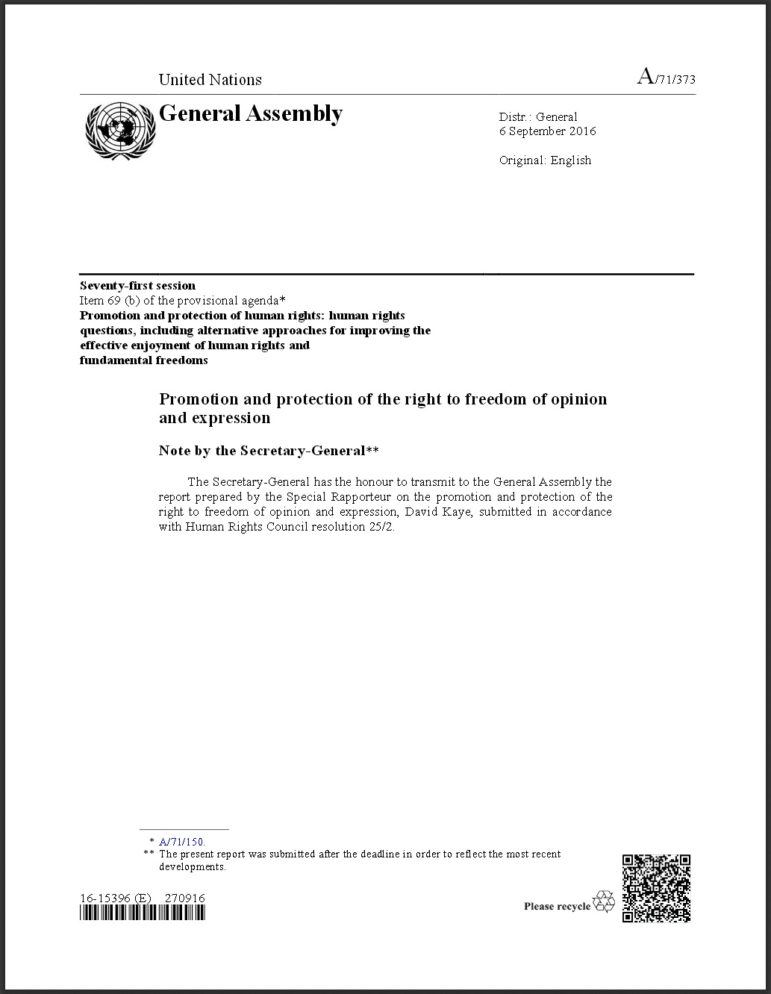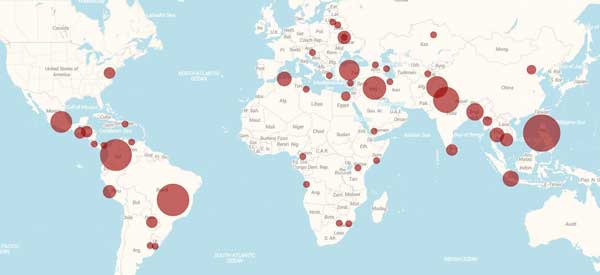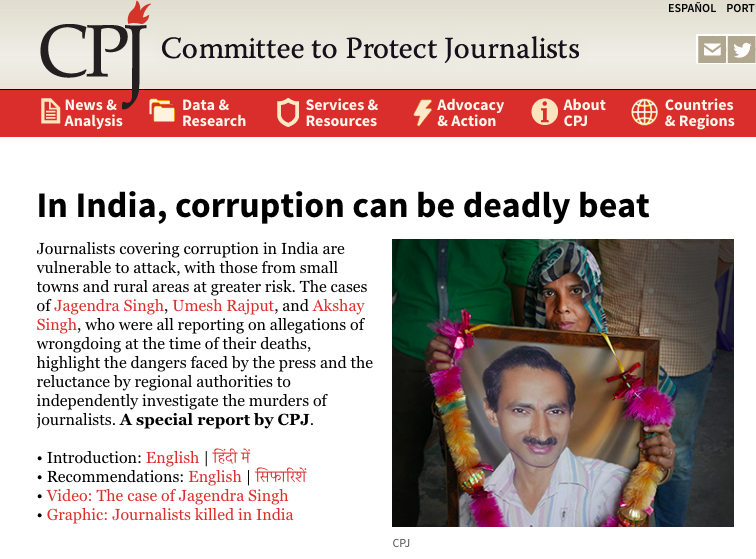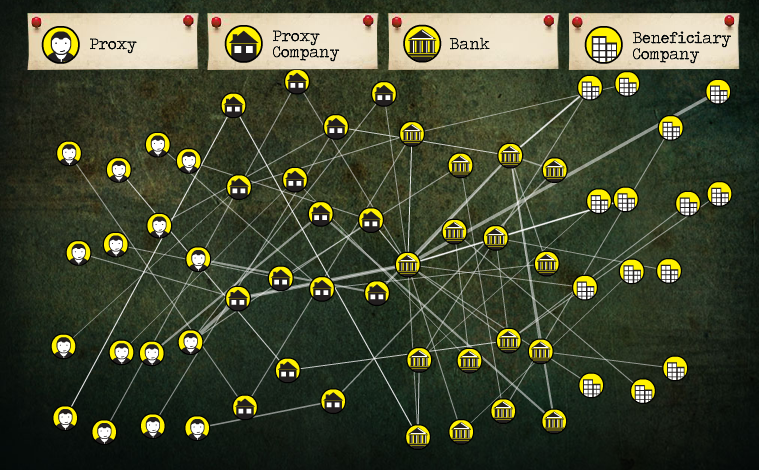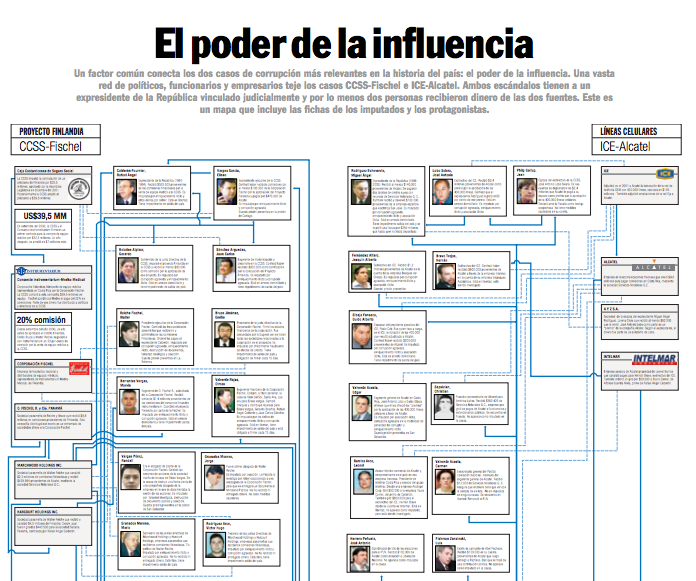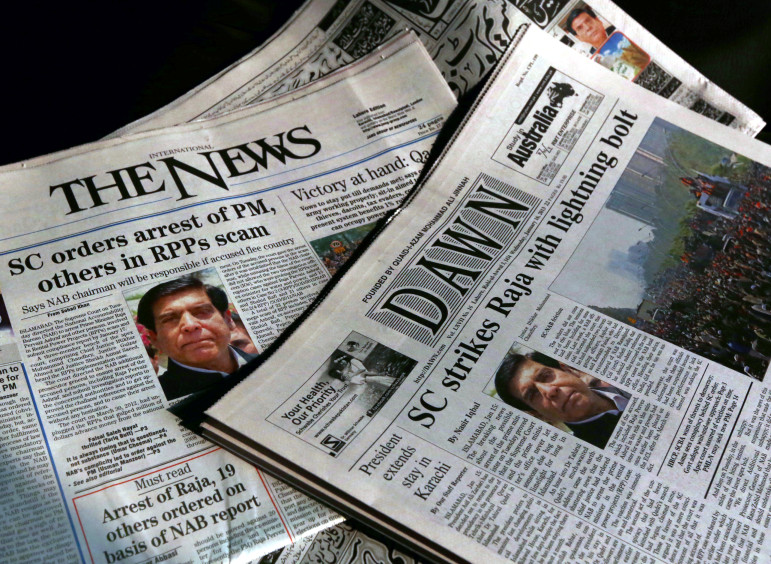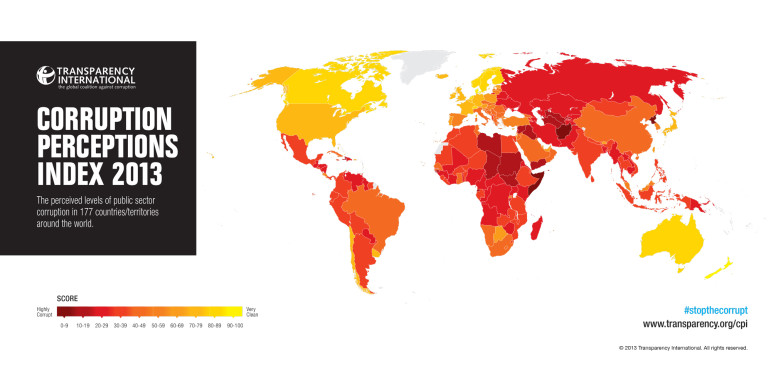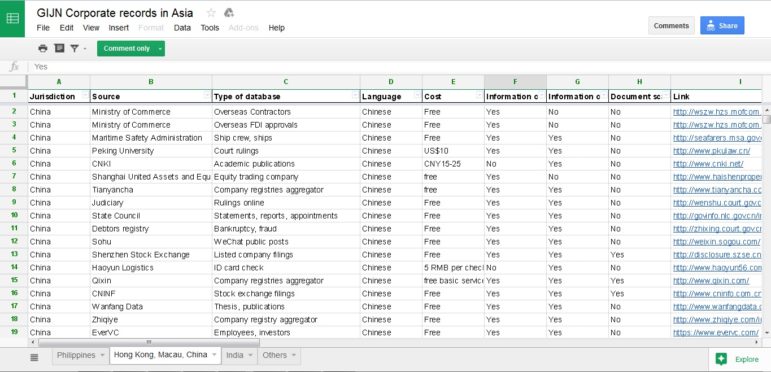
Data Journalism Reporting Tools & Tips
Tracking Business Records Across Asia
The paper trail has changed — money now moves digitally and business registries are databases — and this lets journalists do more than ever before in tracking people and companies across borders. Here’s a useful list of which business databases to start looking into if you’re background companies in China, India, and the Philippines.

